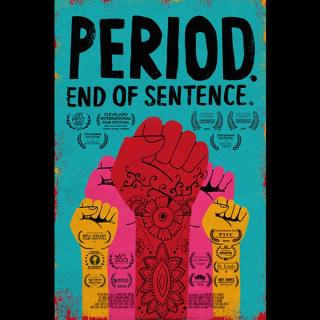
Sick Leave Policies Reflect Vicious Cycle of Distrust Between Employer, Employee
Bringing in a doctor’s note is a practice best left to school kids.

In India, most companies require employees to produce a medical certificate (also called a doctor’s note) after missing work for a certain number of days. It’s a policy so common that no one seems bothered to ask why an adult should have to provide proof of illness in order to avail of their contractual leave. It’s also a policy at the root of a vicious cycle of distrust between employee and employer, one that neither seems to know how to break.
“If you tell your employer that I am saturated, I need a day’s break, or I’m feeling dizzy or I want to travel abroad, they will straight up refuse [leave requests],” said Riddhi Jain, who works in client services at a media agency. “There is nothing called leisure break. Your employer won’t recognize it.”
Thus, employees choose to lie, according to Jain. In her experience, being sick, or having to attend to a tragedy in the family are reasons considered most valid by employers, she said. However, employers have also been in employees’ positions once, so they have more reason to doubt the excuses that are submitted for leave, she added.
Thus, the requirement of a doctor’s note. “It is because employers are afraid of being taken advantage of, but this is happening in the first place because they are taking advantage of their employees by making them work long hours. Usually, one person is doing the job of three people combined,” Jain added.
The overwork of Indian professionals is a phenomenon well documented. Indian millennials were found to spend more time at work than professionals in 25 other countries, working an average of 52 hours per week, according to a 2016 Wall Street Journal report. Another survey from 2016 studied 200,000 professionals working in 30 Indian firms, revealing that 46 percent of workers reported extreme stress levels resulting from their work; some had even reported contemplating suicide as a result of work pressure.
Related on The Swaddle:
You’re a Lying Liar at Work, and You’re Not Alone
In addition to mental health problems stemming from work stress, the practice of demanding proof for sick leave also ignores employees with mental illness, which is not widely accepted as a valid reason for missing work. Even if it were, the stigma around mental health issues can make employees who experience them reluctant to confide explicitly in their employers.
While employers might be sympathetic of clearly visible illnesses such as fever or a cold, more complex illnesses are difficult to explain with a note, said Manish Vyas, 26.
“If I’m getting an anxiety or a panic attack, I’m expected to explain, mid-attack, and also share a doctor’s certificate eventually to ‘prove it,’” he said, adding that colleges have also expected this of him.
“It’s not easy to prove anything when the person is in the middle of a bad day or week,” Vyas added.
The answer to both the vicious cycle of lies, and the consideration of mental health in sick leave policies is simple: it boils down to trust. The problem lies in making the practice of trust mainstream when both sides are so suspicious — but it’s on businesses to make the first move, said Shagun Kumar, managing director of global business firm, TMF Group.
Walking into an HR meeting, the first thing Kumar does is ask which employee hasn’t taken a leave in six months, starting with the manager, he said. Managers need to set an example for their team and utilize their leave and recharge for the marathon, he added. “Always being there is not always a good thing.”
He also emphasized the importance of not interrogating employees for their reasons for taking leave. “[If there is] a lack of trust, you will monitor more. It is counter-productive. It is not inspiring at all,” he said.
“There is a work-life continuum now,” said Sumit Mitra, head of group HR and corporate services at Godrej industries. He alluded to how employees can always be working even after leaving the office, with the advent of technology, which he said has prompted a revamp of Godrej Industries’ policies surrounding work-life balance for employees. “We said that how can we, as an organization, predict how much genuine sick leave an employee would need? Then we said, let’s remove the quota,” he added, touting Godrej Industries’ sick leave policies as being wholly trust-based.
“We hardly see issues of misuse. When you trust your employees, they trust you back,” he said, adding that suspicions of misuse are usually based on pre-conceived notions and paranoia, and not on compelling evidence.
“In the services business, trust is the most critical success factor. We trust each one of our people inherently and that only changes if trust is broken or betrayed,” Kumar said, adding that employees have taken better ownership of their work as a result of the trust-based policy. “We can use sick leave not as a monitoring or a draconian thing, but it can be a part of trust and flexibility that we are trying to drive over all.”
The main error companies make is to wait for their employees to mature, so they can start trusting them, Kumar said. It is important to consider, he added, “Do you trust [that] your people are trustworthy? Or is it that they are trustworthy so you trust them?” He concluded by sharing a philosophy that defines work culture at TMF India, “How you do small things for your people is how [your people] will do big things.”
Rajvi Desai is The Swaddle's Culture Editor. After graduating from NYU as a Journalism and Politics major, she covered breaking news and politics in New York City, and dabbled in design and entertainment journalism. Back in the homeland, she's interested in tackling beauty, sports, politics and human rights in her gender-focused writing, while also co-managing The Swaddle Team's podcast, Respectfully Disagree.
Related


Urban Indian Women Are Increasingly Combating Phone Harassment
